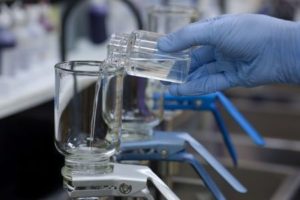 Water and Wastewater Operator Training
Water and Wastewater Operator Training
Ostensibly, operator training in Australia was formalised in the early 1980’s to achieve standards of wastewater and potable water treatment that comply with EPA expectations and are comparable to world’s best practice.
The benefits of operator training are well established in Australia.
Establishment and upgrading of wastewater treatment facilities are expensive, typically in the 10’s of millions of dollars and paid for by municipal rate-payers. Operator training ensures that WWTP facilities are run and maintained in accordance with both the EPA requirements and the WWTP manufacturer’s instructions. To that end, Operator training rationale is as follows.
Longevity of plant assets.
It has been well established that WWTP asset life is prolonged by the establishment and adherence to sound operating procedures and practices. This includes identifying proper operating parameters and recognising situations where processes are failing that will have future negative impacts on WWTP assets.
Meeting EPA licence requirements
Failure to meet Australia EPA discharge licences as described above results in prosecutions under the Environmental Protection Act. In most proven cases, this will mean substantial fines up to several million dollars depending on the severity of the breech. In all cases WWTP operating entities are required to make good the damage caused by non-compliance.
Ongoing / Recurring costs / Efficiency
The cost of maintaining and running WWTP facilities involves maintenance, labour and consumables such as chemicals. Inadequate training leads to overuse of chemicals and other consumables adding to the running costs of wastewater treatment. This also extends to processes such as sludge treatment and dewatering both of which incur high costs in wastewater treatment. Australian practice is to train operators to manage and optimise chemical dosing as well as undergo training in the proper management of sludge.
Occupational health and safety
Before the various Workplace State Safety Acts were updated in Australia, there was little operator training that was specific to workplace safety. World’s Best Practice now dictates that operators are training in the safe management of each process in the wastewater treatment cycle. This not only reduces immediate and long term injury to operators and other workers but reduces overall running costs by reducing operator absences.
Environment
World’s Best Practice involves consideration of the environment. This includes the broader environment that extends to waterways and rivers, coastal areas for recreation and ports, parks and gardens and urban amenities. Wastewater directly impacts these environments. To that end, training of WWTP operators has a direct beneficial effect on protecting these environments.
The training programs offered by the AIWS are carefully chosen to
- Represent a wide variety of contemporary treatment methods
- Maps precisely with training programs offered in Australia and worldwide
- Has both Intermediate and Senior Certificate levels that represent the different responsibilities and knowledge required of operators
- Provide training that is widely accessible by offering affordable courses.
- Conducts leading edge research and development in water and wastewater treatment methodologies.
- Provides consulting and the very best advice from leading experts to advance the practice of water and wastewater treatment throughout the world.
- To promote and encourage effective water and wastewater treatment that enhances local and wider environments.
